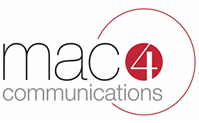
As I was reviewing my eight-year-old son’s homework yesterday, I called him over to ask what was going on with his Spelling sentences. He’s usually a good writer, so I didn’t understand why he was suddenly adding random, superfluous words to his sentences. He explained that his teacher told the class she wanted them to start using more advanced sentences to prepare for third grade. He made the same mistake that many of us – far beyond the second grade – still do in our writing: assuming that more means better.
In any communication, the only thing as important as the message itself are the words you choose to convey it. Here are three rules to keep in mind as you write:
- Choose common words. This is especially important in executive communications. Just as no one liked the know-it-all in second grade, no one cares for the show off in the workplace. You want to choose words that everyone can understand, so they will actually read what you’ve written. Excessively long or unusual words send an “I’m better than you” message. It’s great to have an extensive vocabulary, but reserve the big words for the times when they are truly the best choice to get your point across.
- Use fewer words. Attention spans are shorter than ever and we are inundated with information from multiple channels all day. After each sentence or bullet point, pause and ask yourself, “so what?” If you can’t answer that question, you probably don’t need to make that point. Within each sentence or point, tighten your language. Change passive voice to active. Delete unnecessary adjectives and adverbs. Remove needless phrases.
- Tap into the power of words. When you use fewer words overall, each word is more powerful. While many of us are familiar with common words used to convert or engage (e.g., new, free, because, you, instantly, etc.), there have been countless studies conducted and articles written on the most powerful words in communications. You can Google and save some of these word lists for reference, or you could just tune into your own emotional responses. Next time you read through to the end of an article, pay close attention to an email or click on a social media post, stop and note which words triggered your interest and response.
Lastly, when you are finished editing, go back and read your draft aloud. It will help you identify words that are unnecessarily showy, pointless or insubstantial. Words matter. Make yours matter more.
RELATED: For more writing tips, check out our recent post on Writing Great Leads: How to Hook and Reel in Readers.
Author: Estera Hayes

